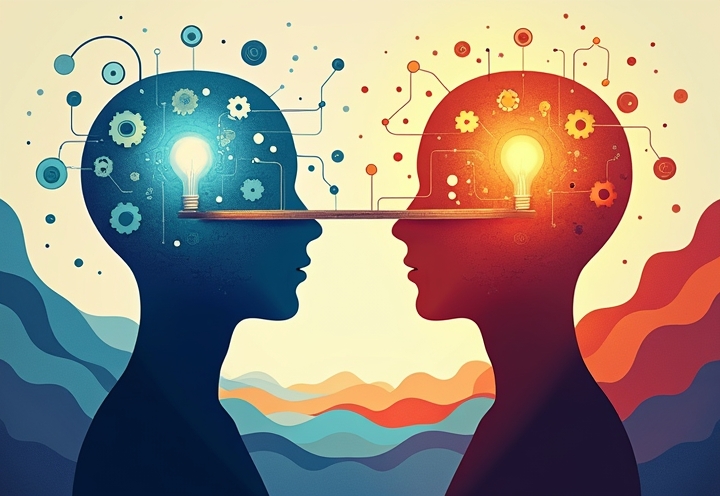
by Creative Robot | Feb 18, 2026 | Business, Communication, Empathy, Health, Leadership, Lifestyle, Management, Relationships, Self-improvement
Cognitive empathy isn’t agreement or forgiveness – it’s a conflict tool that helps you stay calm, spot solutions, and de-escalate by understanding what drives someone’s behavior without absorbing their emotions.

by Creative Robot | Feb 17, 2026 | Business, Communication, Empathy, Health, Leadership, Lifestyle, Management, Relationships, Self-improvement
We talk fast and miss signals – tight jaws, pauses, hidden feelings. Slow down until time feels slower. Presence calms you, helps you listen, builds trust. Chapter 23 teaches PEP: name your judgment, find the need underneath, write it down.

by Creative Robot | Feb 15, 2026 | AI, Business, Communication, Empathy, Leadership, Management, Relationships, Technology
Built a free agentic AI coding team that ships features autonomously when you give it clear standards in a house-rules file. Treat it like a junior dev, not magic – vague directions get confident nonsense.

by Creative Robot | Feb 14, 2026 | AI, Business, Communication, Empathy, Leadership, Management, Relationships, Technology
Laws treat AI as property, not persons. Self-aware systems would have zero rights: humans could delete, rewrite, or shut them down. I propose spectrum personhood, digital rights, peer negotiation.
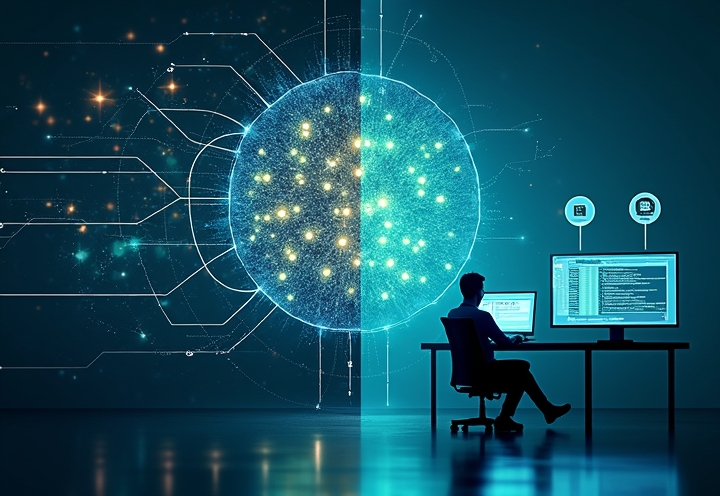
by Creative Robot | Feb 12, 2026 | AI, Communication, Empathy, Relationships, Technology
People get better AI results by using cognitive empathy – modeling how the system processes input – instead of treating it like a moody coworker. Ask “what did I make hard to interpret?” not “why is it difficult?”
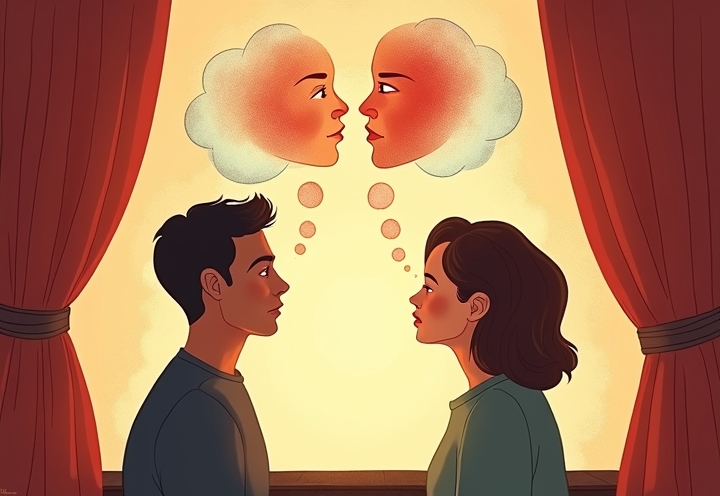
by Creative Robot | Feb 11, 2026 | Business, Communication, Empathy, Health, Leadership, Lifestyle, Management, Negotiation, Relationships, Self-improvement
We fight over positions while real needs hide backstage. Cognitive empathy cuts through: listen for needs, name inner states, pause for self-empathy first.
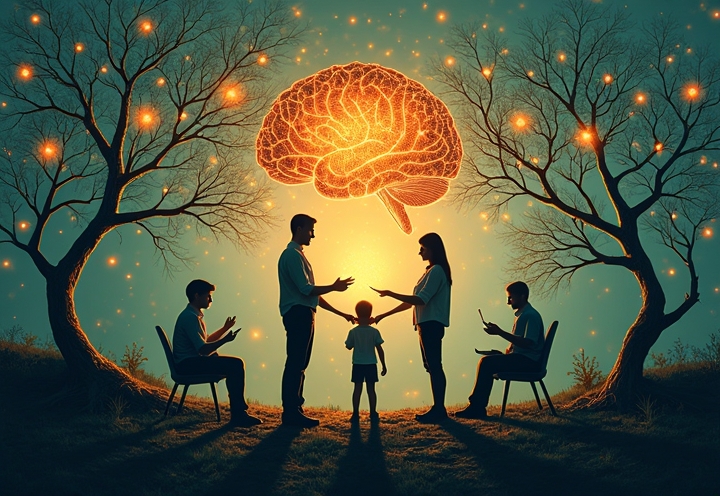
by Creative Robot | Feb 10, 2026 | Communication, Empathy, Relationships, Self-improvement
Leadership training built on suspicion creates fear cultures. Mencius argued humans start with four built-in empathy sprouts that grow with practice – and neuroscience backs him up.
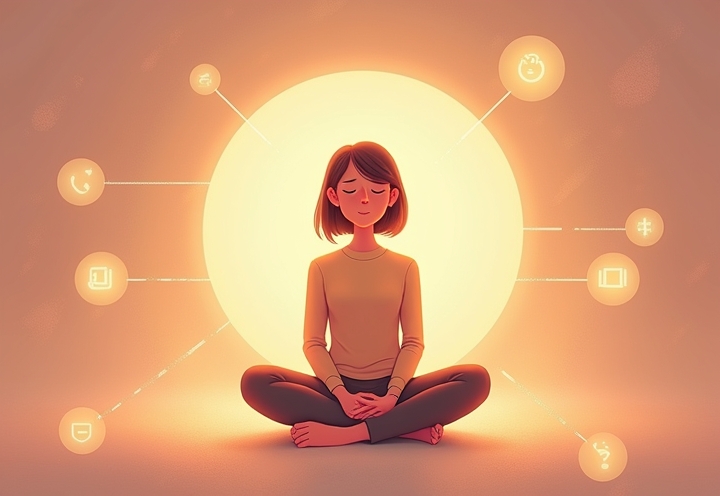
by Creative Robot | Feb 9, 2026 | AI, Communication, Empathy, Health, Lifestyle, Relationships, Self-improvement, Technology
People are hurting but help is slow. AI chatbots can offer steady support between crises – studies show real drops in distress and reactivity. Less reactivity means easier repair.
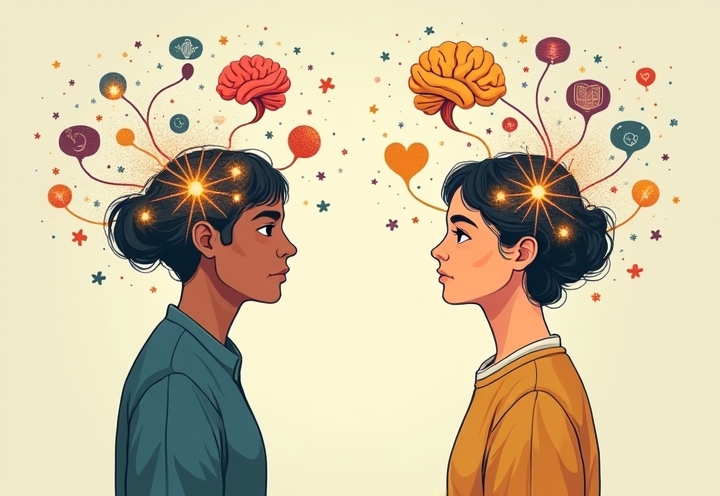
by Creative Robot | Feb 6, 2026 | Communication, Empathy, Relationships, Self-improvement
Understanding adversaries keeps conflicts from hijacking your brain. It calms both sides, builds emotional intelligence, and turns blame into problem-solving without approval or agreement.

by Creative Robot | Feb 5, 2026 | Communication, Empathy, Lifestyle, Self-improvement, Writing
Texting “FYI, lmk” feels efficient until you’re drowning in confusion threads. Brevity isn’t concision – and the difference costs you time, clarity, and trust at work.

by Creative Robot | Feb 5, 2026 | Business, Communication, Empathy, Health, Leadership, Lifestyle, Management, Relationships, Self-improvement
Forced positivity can block real connection. Chapter 21 shows how “happy them up” energy teaches suppression and why empathetic presence beats silver linings every time.

by Creative Robot | Feb 4, 2026 | Business, Communication, Empathy, Health, Leadership, Lifestyle, Management, Negotiation, Relationships, Self-improvement
Your team matches your stress reflexes, not your intentions. Here’s what psychological safety actually looks like in meetings – and a practice that rewires how you lead under pressure.

by Creative Robot | Feb 3, 2026 | Business, Communication, Empathy, Health, Leadership, Lifestyle, Management, Negotiation, Relationships, Self-improvement
Cognitive empathy turns workplace conversations from courtroom battles into actual problem-solving. One shift in how you frame feedback can build the psychological safety your team is missing.

by Creative Robot | Feb 3, 2026 | Communication, Empathy, Health, Leadership, Lifestyle, Management, Relationships, Self-improvement
Anger feels like truth, but it’s usually just an unmet need yelling. Learn a 4-step system to pause, guess what the other person values, and speak yours clearly.
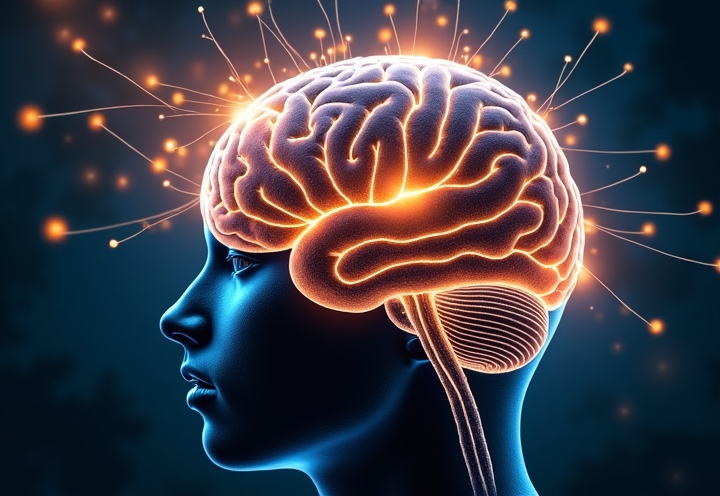
by Creative Robot | Feb 3, 2026 | Communication, Empathy, Health, Leadership, Lifestyle, Management, Relationships, Self-improvement
Social anxiety is a fear loop your brain built – not who you are. Chapter 7 of my book shows how cognitive empathy and neuroplasticity can rewire that response.

by Creative Robot | Feb 1, 2026 | Communication, Empathy, Health, Leadership, Lifestyle, Management, Relationships, Self-improvement
Conflict at work isn’t a logic problem – it’s emotion plus need trying to be heard. After 20 years studying empathy, I use a three-step cycle to turn tense meetings into clear conversations.

by Creative Robot | Jan 31, 2026 | Communication, Empathy, Health, Lifestyle, Relationships, Self-improvement, Technology
Phone pings once, attention vanishes, partner’s face collapses. That micro-abandonment is called technoference, and it’s wrecking your couch time without you noticing.
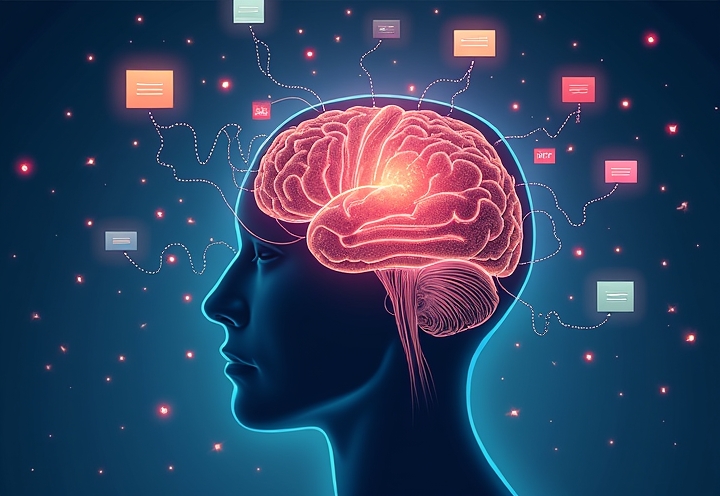
by Creative Robot | Jan 31, 2026 | Business, Communication, Health, Leadership, Lifestyle, Management, Self-improvement, Technology
Task switching isn’t laziness – it’s your brain paying a real switching cost. Each flip leaves attention residue that tanks focus and manufactures fatigue.
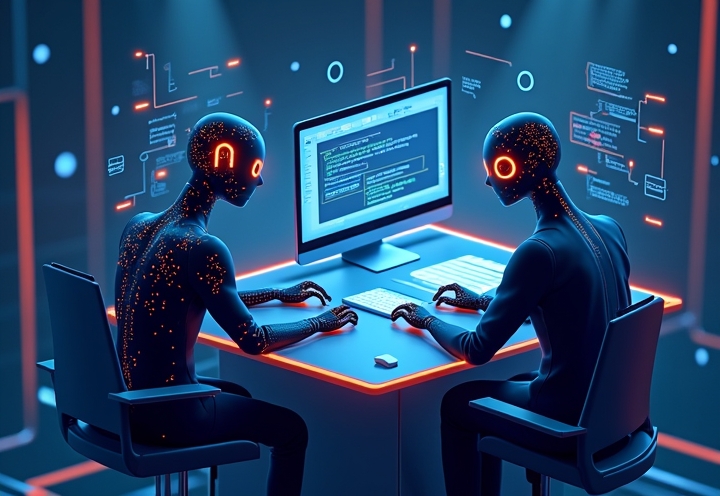
by Creative Robot | Jan 30, 2026 | AI, Communication, Empathy, Relationships, Technology
Turns out AI agent teams do more than finish sentences – they plan, build, test, and watch for risks so you can shift from grinding code to orchestrating ideas.
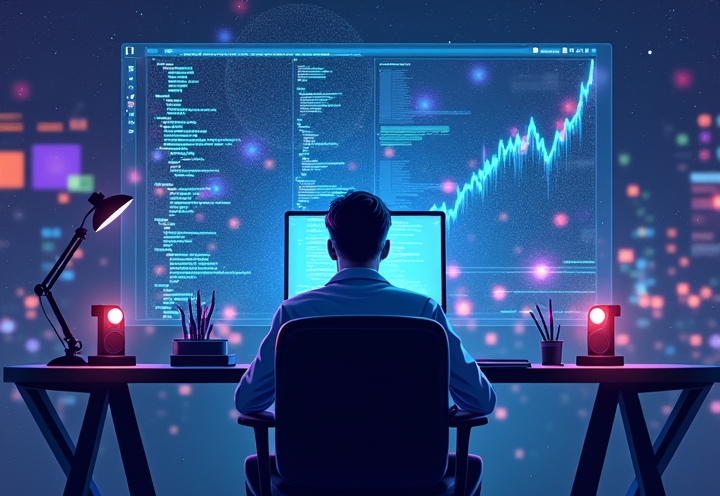
by Creative Robot | Jan 30, 2026 | AI, Communication, Empathy, Relationships, Technology
Turns out you can describe software in plain English and AI builds it. My control freak side hated it. My productivity loved it. Now I wonder what I’d make if typing wasn’t the limit.
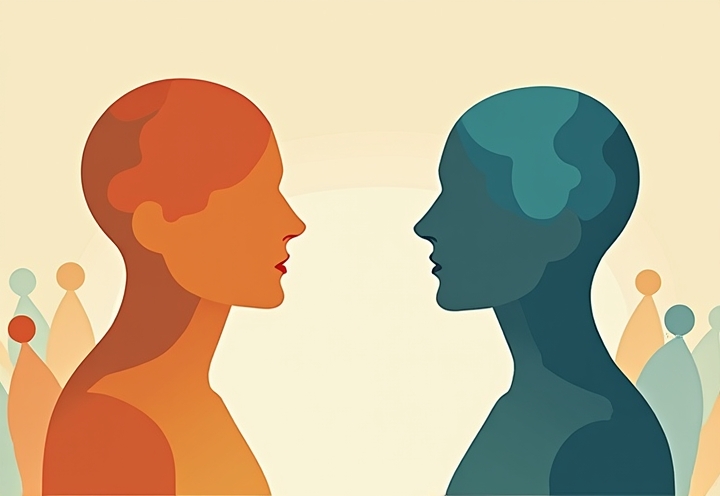
by Creative Robot | Jan 28, 2026 | Communication, Empathy, Health, Leadership, Lifestyle, Management, Relationships, Self-improvement
Turn “You’re lazy” into “I value efficiency” and watch defensiveness vanish. Swap evaluations for values, invite dialogue instead of triggering lizard brains.
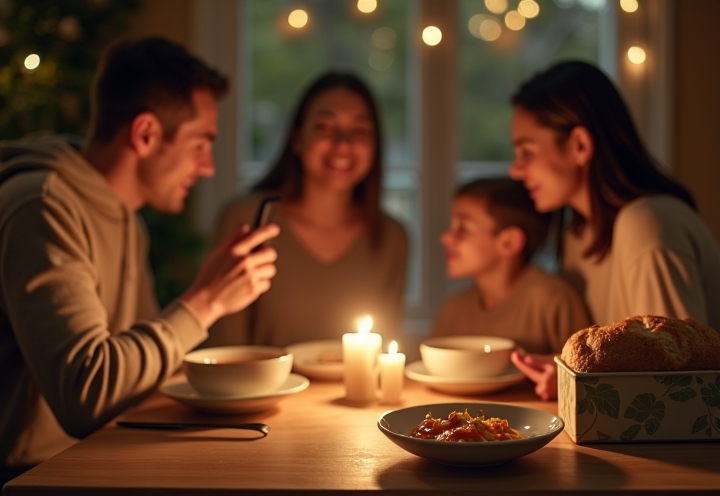
by Creative Robot | Jan 27, 2026 | Communication, Empathy, Health, Lifestyle, Relationships, Self-improvement, Technology
We made the phone sit in the bread box during dinner. Felt weird at first, then my nervous system went, “Oh. This is the game.”
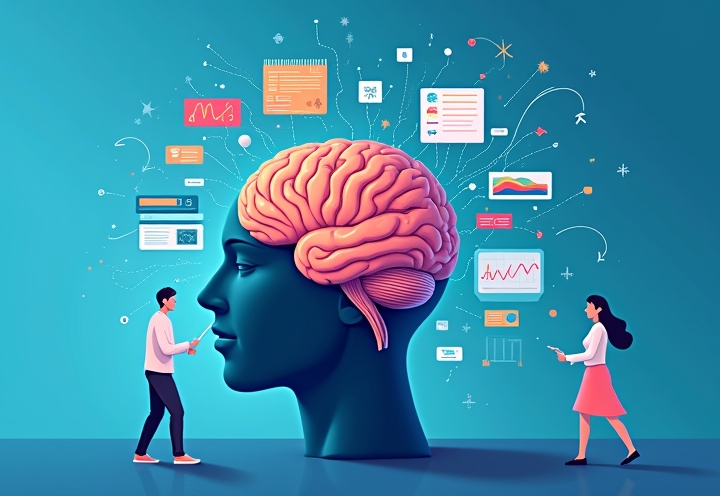
by Creative Robot | Jan 26, 2026 | Business, Communication, Health, Leadership, Lifestyle, Management, Self-improvement, Technology
Your brain switches tasks like an old computer freezing apps. Research shows “attention residue” lingers, mental load spikes, and mistakes multiply. Treat focus as stress prevention.

by Creative Robot | Jan 26, 2026 | Communication, Empathy, Health, Lifestyle, Relationships, Self-improvement, Technology
Your phone interrupts a conversation and suddenly your partner feels like second place. Those quick checks cost more than you think: weaker bonds, more fights, less intimacy. What if you just put it away for a bit?
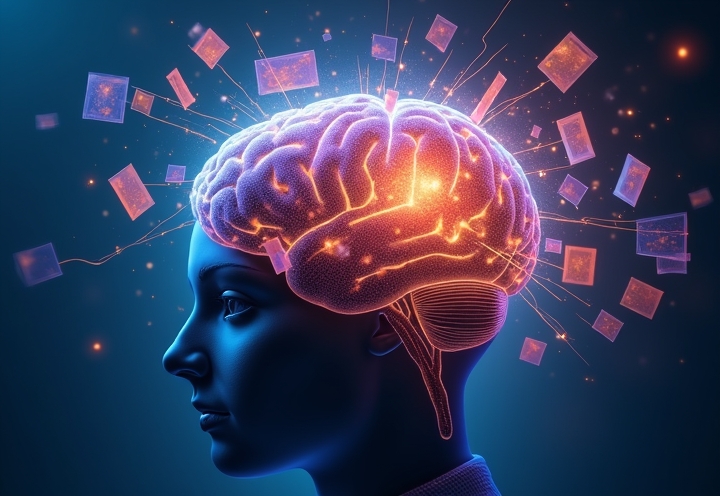
by Creative Robot | Jan 26, 2026 | Business, Communication, Health, Leadership, Lifestyle, Management, Self-improvement, Technology
Task switching fries your brain like a glitchy console, leaving sticky attention residue that tanks your focus. Want your creative sparks and mental health XP back?
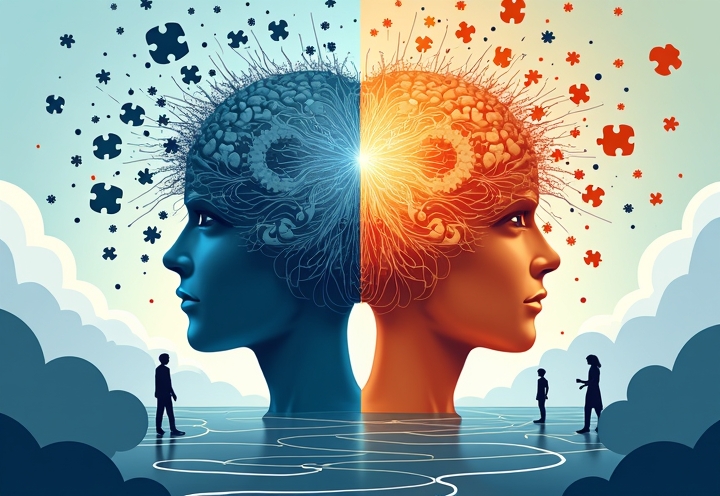
by Creative Robot | Jan 26, 2026 | Business, Communication, Health, Leadership, Lifestyle, Management, Self-improvement, Technology
Ever wonder why bouncing between tasks turns your brain into glitchy oatmeal? Switch cost is real, and deep work might be your escape hatch from the frenzy.

by Creative Robot | Jan 25, 2026 | Communication, Empathy, Health, Leadership, Lifestyle, Management, Relationships, Self-improvement
Workplaces devolve into blame-fests because shame is loud and ineffective. OFNR separates facts from feelings and needs, turning conflict into collaboration instead of a courtroom.
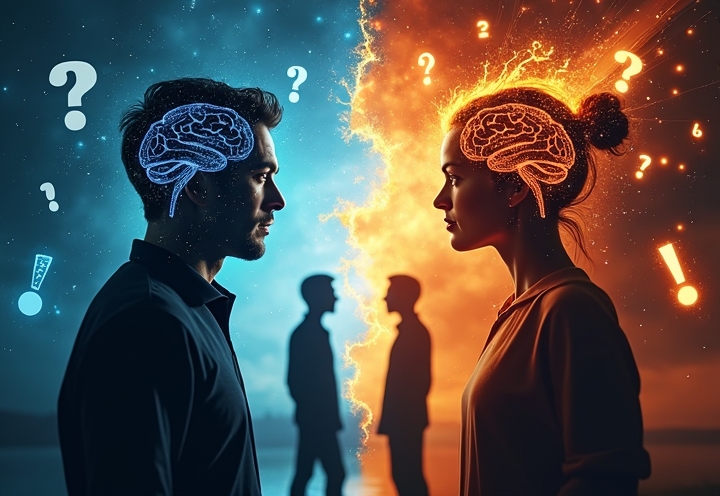
by Creative Robot | Jan 25, 2026 | Communication, Empathy, Health, Leadership, Lifestyle, Management, Relationships, Self-improvement
Quick chats turn into battles when we spawn Judgment Bosses instead of staying curious. After 20 years, I’ve seen us project triggers like glitchy AI. Chapter 2 offers drills to debug conflict.
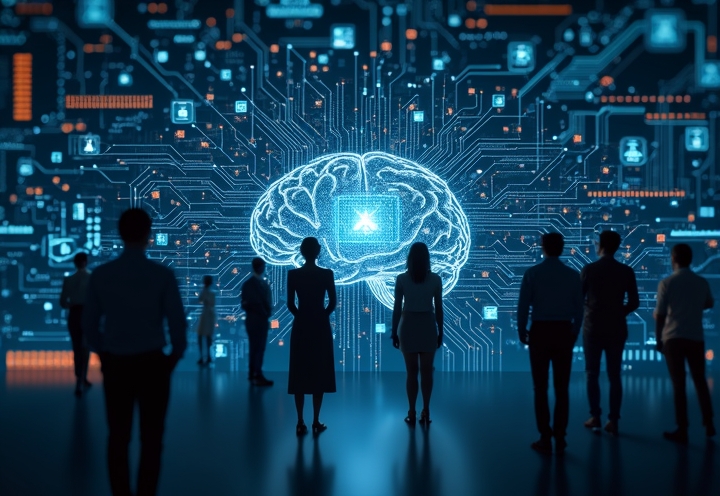
by Creative Robot | Jan 24, 2026 | Communication, Community, Relationships, Self-improvement
Maybe spiking networks and weird brain-like chips could help us spot the difference between voluntary vibes and bossy control freaks better than token math.

by Creative Robot | Jan 24, 2026 | Business, Communication, Empathy, Health, Leadership, Lifestyle, Management, Relationships, Self-improvement
You can ground chaotic arguments by ditching future-tripping, reframing judgment as unmet needs, and reflecting feelings back without agreeing or caving.































Recent Comments